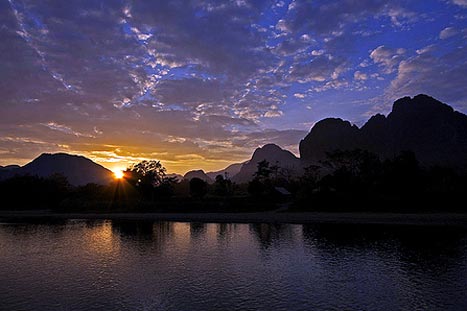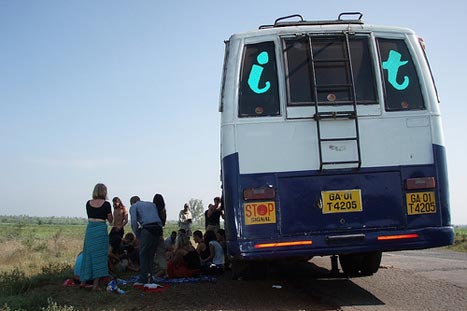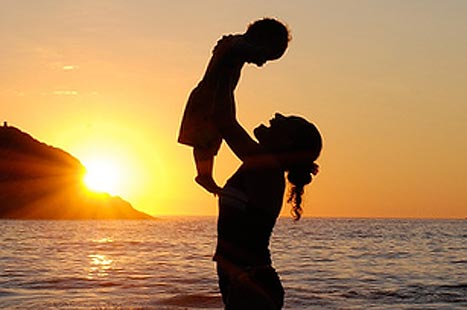We had little idea of how we would cope, whether we could provide an education for the children, and if three months later we would be home, shamefaced, saying 'Oh, it just didn’t work out'. Here we are, though, a year and a quarter later having crossed Borneo, Indonesia, Thailand and Laos, and having had the adventures of a lifetime along the way.
If you’re thinking of a similar adventure, here are a few things we've learned along the way.

Don’t assume that children are a barrier to intrepid travel; they are surprisingly tough and thrive on adventure. Our lives are richer for having stayed in a tribal longhouse in Sarawak, Borneo; spotted orang-utans in the majestic rainforests of Malaysia; and cycled through the dreamy karst scenery and tranquil villages of Laos. The kids are always first to make people smile, and if they are too young to walk far you can often 'cheat' by hiring transport to villages close to the road.
Small children tire quickly when things become monotonous and need to be able to spend a good deal of time just playing. If you’ve been moving around a lot, stop somewhere nice and give your family a chance to recharge batteries and make friends. It’s amazing how quickly a place feels like home.
Take out insurance, plan your vaccinations in good time and find out how to keep your family safe before you go. But don’t be paranoid: our children have both been healthier than they ever were in London.

Travel in the developing world often involves appallingly long, uncomfortable bus journeys with speed-freak drivers, doubtful safety standards and aircon that is permanently set to 'max'. We keep spare clothes and sick bags (as well as games and books) in the hand luggage, but when we can we take the train, boat or plane instead.
They may be the apples of your eye, but caring for children 24/7 while experiencing the ups and downs of long-term travel can be tiring and stressful. When the opportunity arises, we hire childcare and take a romantic evening out together, or we take it in turns to head off and indulge in more individual pursuits, such as diving or climbing.

You’ll need to give your kids an education, of course. We have had to discipline ourselves to set aside a few hours every weekday for some one-on-one home schooling. It hasn’t always been easy – the boys would much rather be off grubbing around in the dirt chasing small creatures – but we generally win them over by adapting exercises to their interests and making use of our surroundings in the lessons.
Apart from its important roles as cinema, games console and Skype-with-the-rellies hub, a computer has been a vital tool for our home schooling. We can access educational resources and conduct research wherever there is Wi-Fi.
It is a cliché, of course, but travelling itself is the best education. Rather than just heading to the beach, seek out interesting and unusual experiences to maximise the value of your trip. Our boys have wandered reef, forest and mountain; hung out with some startlingly different cultures; explored ancient temples and exotic markets; and seen crocodiles, hornbills, orang-utans and many more creatures – in the wild, not in a zoo. Experiences like those can’t be had at school.